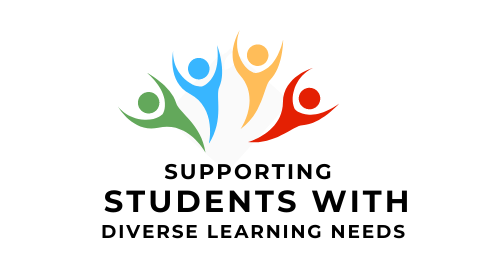There are different kinds of memory. Impacts on learning vary depending on the type of memory affected.
- Working memory – the ability to hold information in memory so that it can be manipulated or used. Students who have reduced capacity in working memory may experience:
- Difficulties taking notes in class (eg., slow or inaccurate results)
- Difficulty ‘hanging on to’ multi-step instructions presented orally
- Difficulty starting tasks and maintaining attention to complete them
- Difficulties staying organized (eg., or forgetting items)
- More difficulties with completing tasks that require mentally holding information in memory (eg., doing math in one’s head, multiple choice test questions)
- Long-term retrieval – difficulties in retaining information for retrieval in the future:
- Difficulty in learning and remembering information for recall on tests or for use in assignments.
- Recommended academic accommodations must not interfere with the essential learning outcomes of the course or program
- Provide lecture materials in a range of formats. This allows easy access to review course content (eg. handouts, powerpoint slides available on course website)
- Provide instructions clearly and logically
- Provide important instructions both orally and in a written handout or on the course web page for later reference
- Organize learning opportunities to encourage meaning-making. This could include providing opportunities for students to link new knowledge to past knowledge or experiences; illustrating how the knowledge presented will be useful to students in practical ways; or providing opportunities for students to use knowledge learned in class activities or discussions.
- Provide a range of assessment options whenever possible
- Refer students with memory challenges to the campus Learning Centre to explore and develop strategies for staying organized, completing assignments, studying, and writing tests.
- Note taker in class
- Recording lectures
- Extra time on tests
- Provision of formula sheet for tests
- Alternative evaluation methods in specific cases with strong supporting documentation and in ways that do not compromise essential learning outcomes of the course
- Learning skills/tutoring support
- Working to develop organizational and study strategies for those with working memory challenges
- Developing study and learning strategies to assist with long-term retention of information such as mnemonics or meaning-making strategies
- Reduced course load to recognize that students may require more time to learn and retain information
- Adaptive technology
- Text-to-speech software can help to increase efficiency in decoding text, reducing the ‘load’ on working memory, and improving comprehension of written material especially for students who experience both difficulties in working memory and dyslexia
- Voice dictation software can improve the efficiency of expressing thoughts in a written format especially for students who experience both challenges with working memory and with producing written work (eg. due to a learning disability or fine motor coordination difficulties)
- Learning Disabilities
- Acquired Brain injury
- Mental Health conditions such as Anxiety
Case Study
Tom is a talented carpentry student. He has a solid sense of the tools and his work in the shop is accurate. However, instructors are noticing that his performance on tests is lower than they would expect given his capabilities during shop time and the understanding he demonstrates in conversations. He is registered with Disability Services and is receiving extra time on tests. His instructor decides to ask Tom about what she has noticed to see if he has any insights.
Tom says that he finds the multiple choice format of the tests very difficult. He often second guesses himself when trying to pick the best answer and finds it difficult to keep all the choices in mind. His instructor suggests that Tom meet with the Learning Skills Centre and also checks in with his Disability Advisor for ideas.
The Disability Advisor reviews Tom’s Learning Disability Assessment and sees that the Assessment reports that Tom has low scores in working memory. This means he will have difficulty holding one piece of information in his head while using other information related to it. This type of memory is used in multiple choice exams because students need to hold the question in their head while they read and compare it to the choices given. The Advisor, Tom, and the Learning Skills Coordinator discuss some strategies that could help Tom compensate for his difficulties with working memory. Tom tries several different strategies with the Learning Skills Coordinator on practice questions. In the end, Tom decides that he will read the question and then jot down what he feels is the correct answer before he looks at the choices. Then he will read the question again and compare his answer to the choices available. He finds that this helps him to reduce his second guessing. Reading the question more than once also helps Tom to remember more accurately what is being asked. His additional testing time allows Tom to use this strategy and to complete all the test questions.

